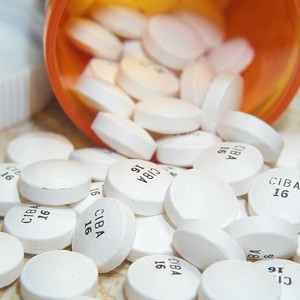Sarpatwari and co-authors investigate the legal and ethical consideration for promoting generics prescribing in the US and how this might apply to biosimilars [1].
Considerations when promoting generics prescribing in the US
Biosimilars/Research
|
Posted 04/05/2015
 0
Post your comment
0
Post your comment

Both traditional approaches – information-supplying programmes and academic detailing – and financial incentives are used in the US as physician-centred strategies to promote generics prescribing [2].
Legal considerations
It has been argued that offering payments for generics prescribing exposes physicians to liability under the federal anti-kickback statute, which prohibits offering or soliciting payment to induce the purchase of items paid for by a federal healthcare programme.
However, in October 2013, the Department of Health and Human Services stated that it did not consider health plans offered through the Patient Protection and Affordable Care Act’s new insurance exchanges to be federal healthcare programmes. Thus, there are still many situations in which physicians can accept financial incentives for prescribing generics or biosimilars.
Ethical considerations
The fact that physicians may be offered bonuses by private insurers, qualified health plans and employers for prescribing generics and biosimilars does not mean that they should necessarily accept them.
Inducements to encourage brand-name drug prescribing have been the subject of substantial controversy and have resulted in patients being switched to expensive and potentially harmful medication (considering the limited pre-marketing testing). In contrast, generics tend to have well-characterized benefit-to-risk ratios.
A study of six classes of chronic medications between 2001 and 2003 found 12.6% greater adherence among US patients who commenced treatment with a generic rather than a brand-name drug. These differences support paying physicians to promote generics prescribing.
Generics used in therapeutic substitution have different active ingredients than the originator product and non-interchangeable biosimilars need not demonstrate clinical equivalence to the originator product. Financial incentives should also not be offered to physicians for initiating treatment-naïve patients on generics or biosimilars, as payments could prompt unnecessary treatment or preclude clinically preferable treatment with a non-bioequivalent brand-name drug.
The authors therefore conclude that physician payments should be limited to bioequivalent substitution of non-narrow therapeutic index (NTI) drugs.
Conflict of interest
AS Kesselheim’s (ASK) work is supported by an Ignition Award from the Harvard Program in Therapeutic Science. The funders had no role in study design, data collection and analysis, decision to publish, or preparation of the manuscript. The authors of the research paper [1] declared that they have read the journal's policy and declare the conflicts that ASK is a member of the Editorial Board of PLOS Medicine.
Related articles
Paying physicians to prescribe generics and biosimilars in the US
Substitution of biosimilars in the US
Promoting generics prescribing in the US
References
1. Sarpatwari A, Choudhry NK, Avorn J, Kesselheim AS. Paying physicians to prescribe generic drugs and follow-on biologics in the United States. PLoS Med. 2015;12(3):e1001802.
2. GaBI Online - Generics and Biosimilars Initiative. Substitution of generics in the US [www.gabionline.net]. Mol, Belgium: Pro Pharma Communications International; [cited 2015 May 4]. Available from: www.gabionline.net/Biosimilars/Research/Substitution-of-generics-in-the-US
Permission granted to reproduce for personal and non-commercial use only. All other reproduction, copy or reprinting of all or part of any ‘Content’ found on this website is strictly prohibited without the prior consent of the publisher. Contact the publisher to obtain permission before redistributing.
Copyright – Unless otherwise stated all contents of this website are © 2015 Pro Pharma Communications International. All Rights Reserved.
News
FDA approves Poherdy (first interchangeable pertuzumab) and Armlupeg (pegfilgrastim) biosimilars
EMA recommends approval for insulin glargine biosimilar Ondibta and denosumab biosimilar Osqay
General
Samsung Bioepis wins Pyzchiva case; Regeneron patent rulings threaten foreign biosimilars
Chinese biosimilars go global: growth, partnerships, and challenges
What is the future for the US biosimilar interchangeability designation

Biosimilars/Research Posted 05/06/2025
Biosimilar clinical efficacy studies: are they still necessary?

Biosimilars/Research Posted 27/05/2025
The best selling biotechnology drugs of 2008: the next biosimilars targets








Post your comment